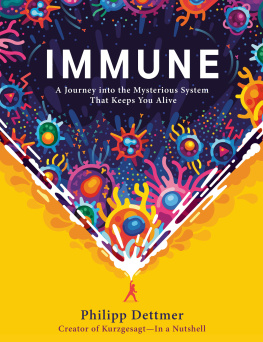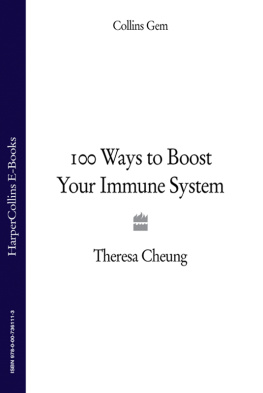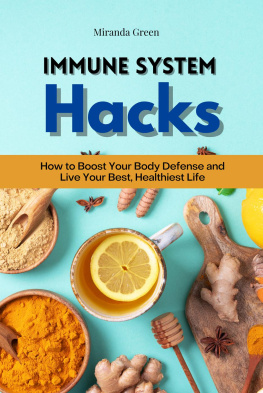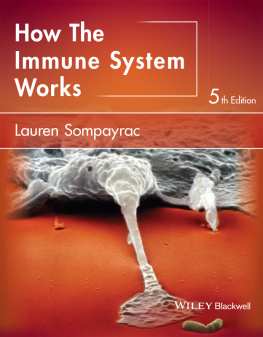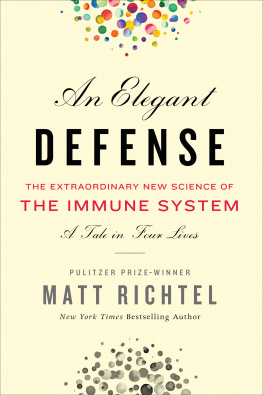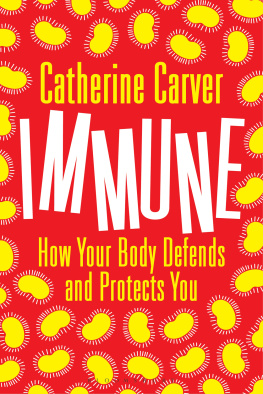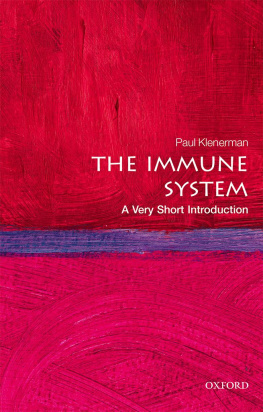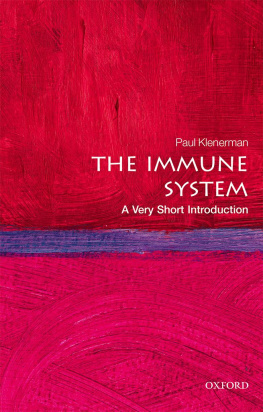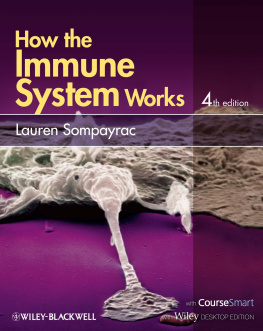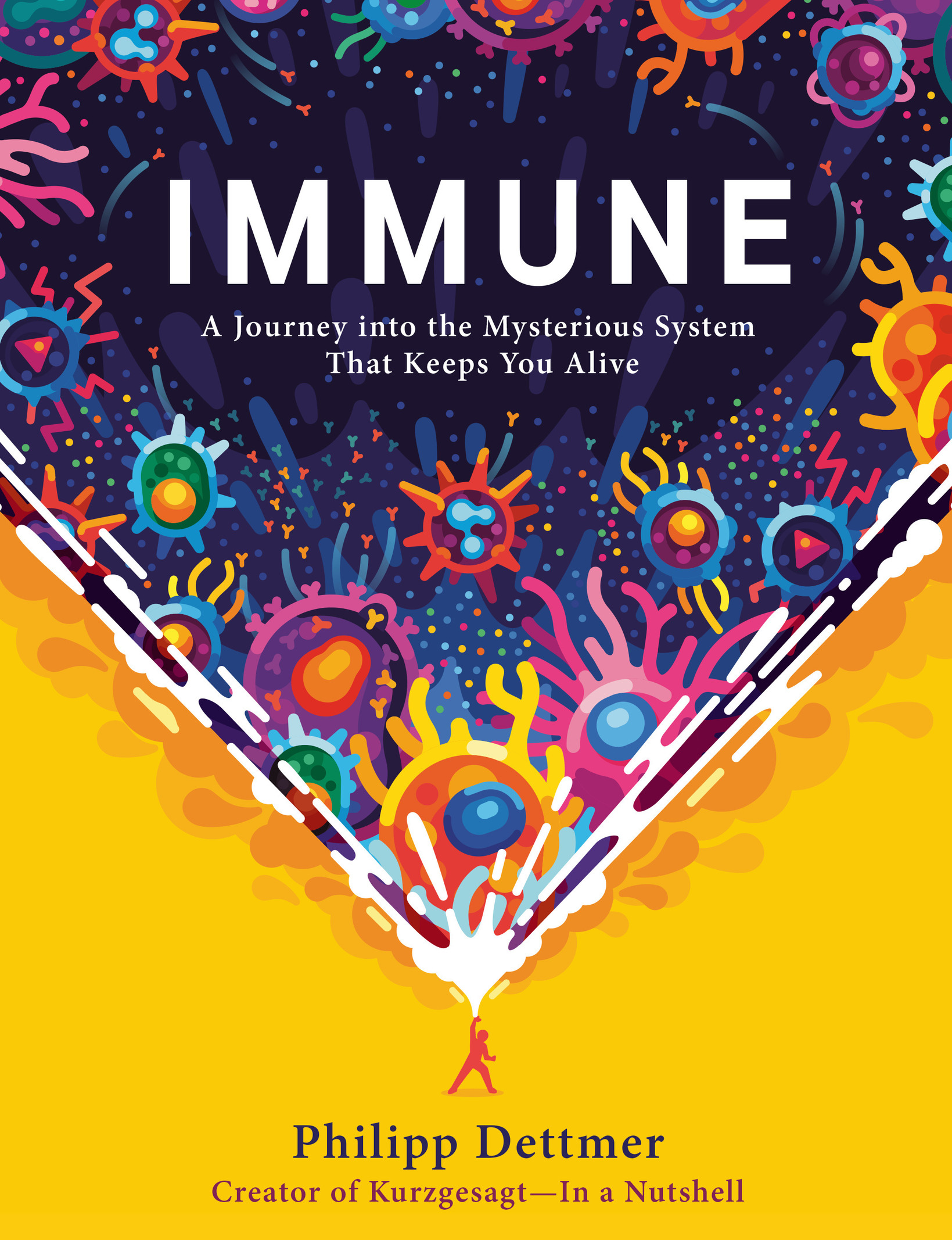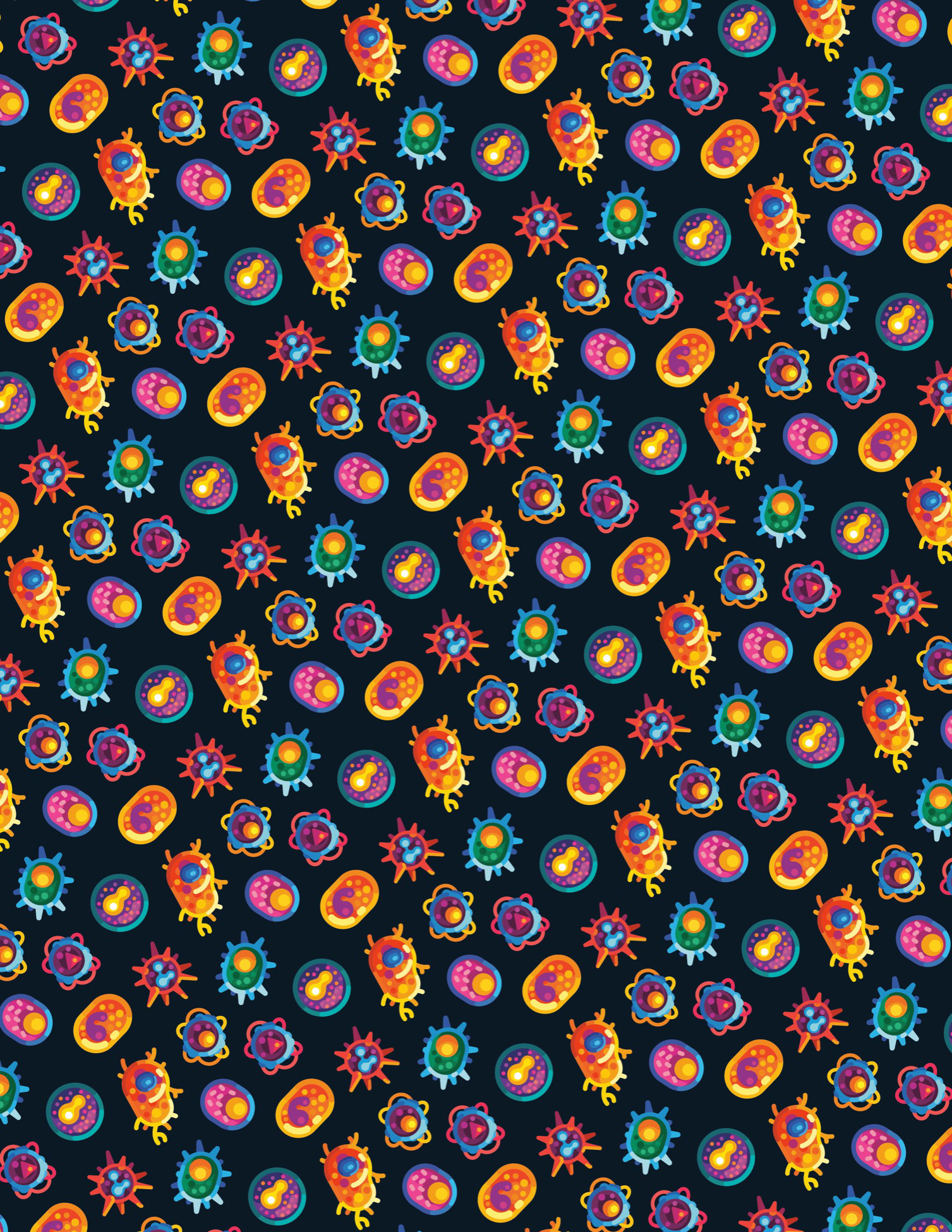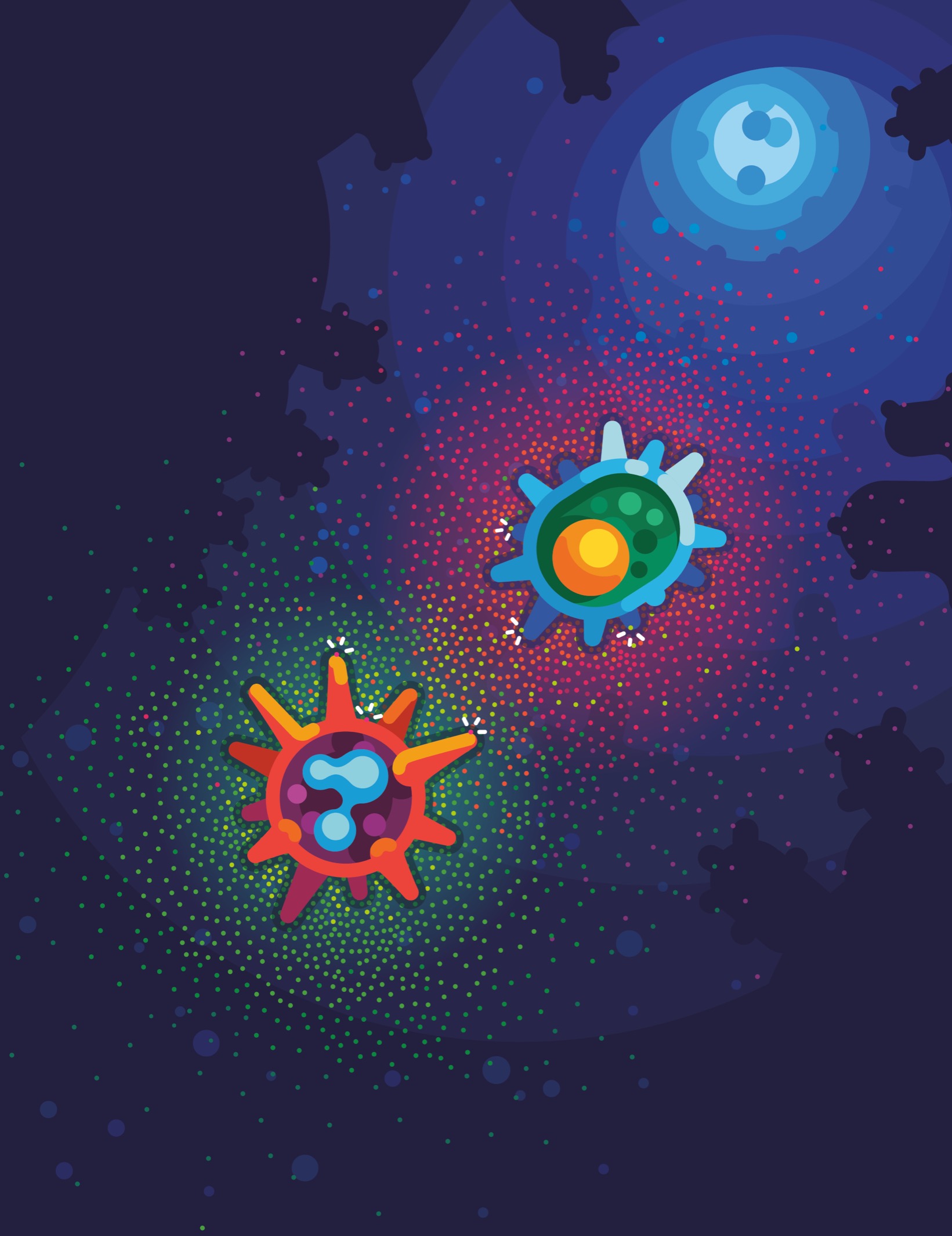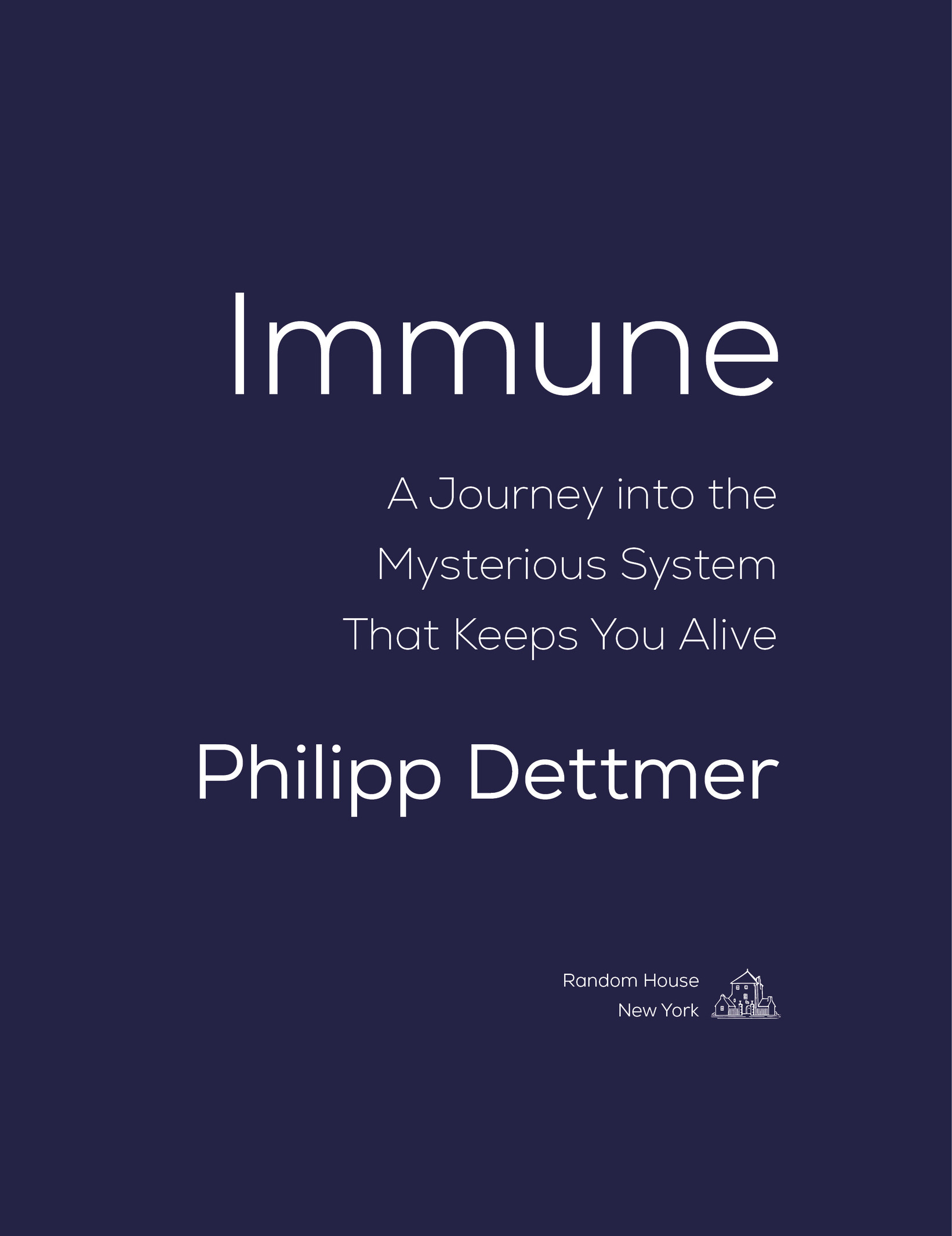All rights reserved.
Published in the United States by Random House, an imprint and division of Penguin Random House LLC, New York.
Random House and the House colophon are registered trademarks of Penguin Random House LLC.
Names: Dettmer, Philipp, author.
Title: Immune / Philipp Dettmer.
Description: First edition. | New York : Random House, [2021]
Identifiers: LCCN 2021010071 (print) | LCCN 2021010072 (ebook) | ISBN 9780593241318 (hardcover) | ISBN 9780593241332 (ebook)
Subjects: LCSH: Immune system. | Immunology.
Classification: LCC QR181 .D47 2021 (print) | LCC QR181 (ebook) | DDC 616.07/9dc23
Introduction
Imagine waking up tomorrow, feeling a bit under the weather. An annoying pain in your throat, your nose is runny, you cough a bit. All in all, not bad enough to skip work, you think, as you step into the shower, pretty annoyed about how hard your life is. While you are totally not being a whiny little baby, your immune system is not complaining. It is busy keeping you alive so you can live to whine another day. And so, while intruders roam your body, killing hundreds of thousands of your cells, your immune system is organizing complex defenses, communicating over vast distances, activating intricate defense networks, and dishing out a swift death to millions, if not billions, of enemies. All while you are standing in the shower, mildly annoyed.
But this complexity is largely hidden.
Which is a real shame because there are not many things that have such a crucial impact on the quality of your life as your immune system. It is all-embracing and all-encompassing, protecting you from bothersome nuisances like the common cold, scratches, and cuts, to life-threatening stuff from cancer and pneumonia to deadly infections like COVID-19. Your immune system is as indispensable as your heart or your lungs. And actually, it is one of the largest and most widespread organ systems throughout your body, although we dont tend to think about it in these terms.
For most of us, the immune system is a vague and cloud-like entity that follows strange and untransparent rules, and which seems to sometimes work and sometimes not. It is a bit like the weather, extremely hard to predict and subject to endless speculations and opinions, resulting in actions that feel random to us. Unfortunately many people speak about the immune system with confidence but without actually understanding it, it can be hard to know which information to trust and why. But what even is the immune system and how does it actually work?
Understanding the mechanisms that are keeping you alive as you read this is not just a nice exercise in intellectual curiosity; it is desperately needed knowledge. If you know how the immune system works, you can understand and appreciate vaccines and how they can save your life or the lives of your children, and approach disease and sickness with a very different mindset and far less fear. You become less susceptible to snake oil salesmen who offer wonder drugs that are entirely devoid of logic. You get a better grasp on the kinds of medication that might actually help you when you are sick. You get to know what you can do to boost your immune system. You can protect your kids from dangerous microbes while also not being too stressed-out if they get dirty playing outside. And in the very unlikely case of, say, a global pandemic, knowing what a virus does to you and how your body fights it, might help you understand what the public health experts say.
Besides all these practical and useful things, the immune system is also simply beautiful, a wonder of nature like no other. The immune system is not a mere tool to make your cough go away. It is inextricably tied into almost all other processes in your bodyand while it is centrally important to keeping you alive, it is likely that it may also be the part of your body that causes your untimely death, either by failing or by being too active.
I have been fascinated and obsessed by the incredible complexity of the human immune system for the better part of a decade now. It began in university where I was studying information design and was looking for a semester project and the immune system seemed like a good idea. So I got a large pile of books about immunology and began digging in, but no matter how much I read, things just did not get less complicated. The more I learned the more impossible it seemed to simplify the immune system as every layer revealed more mechanisms, more exceptions, more complexity.
And so a project that was supposed to last the spring took over the summer and then the fall and the winter. The interactions of the parts of the immune system were too elegant and the dance they danced was too beautiful to stop learning about them. This progress fundamentally changed how I experienced and felt about my body.
When I got the flu I could no longer just complain, but had to look at my body, touch my swollen lymph nodes, and visualize what my immune cells were doing right then, which part of the network was activated, and how T Cells killed millions of intruders to protect me. When I cut myself while being careless in the forest I felt gratitude for my Macrophages, large immune cells hunting scared bacteria and ripping them into pieces to protect the open wound from infection. After taking a bite of the wrong granola bar and suffering an allergic shock, while being rushed to the hospital, I thought about Mast Cells and IgE Antibodies and how they had almost killed me in a misguided attempt to protect me from scary foodstuffs!
When I was diagnosed with cancer at the age of thirty-two and had to undergo a couple of operations and then chemotherapy, my obsession with immunology became even more intense. One of the jobs of my immune system is to kill cancer. In this case, it had failed.
But I somehow could not be angry or too upset as I had learned how hard of a job this was for my immune cells and how hard cancer had to work to keep them in check. And as the chemo melted the cancer my thoughts again went to my immune cells invading the dying tumors and eating them up one cell after another.
Disease and sickness are scary and unsettling and Ive had plenty of that in my life. But knowing how my cells, my immune system, this integral and personal part of myself, defended the entity that is me, how it fought and died and healed and restored this body I inhabit, always gave me a lot of comfort. Learning about the immune system made my life better and more interesting and it alleviated a lot of the anxiety that comes with being sick. Knowing about the immune system always put things in perspective.

